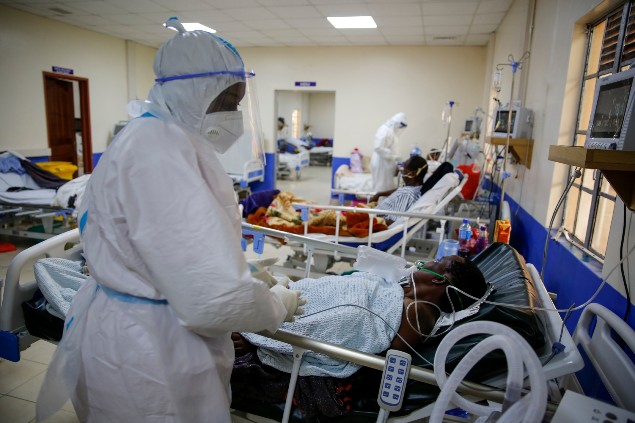While Canada is at the front of the line to get COVID-19 vaccines, nine out of 10 people in many poor countries will not get immunized next year for a lack of vaccines, says Oxfam, a confederation of charitable organizations.
Canada has aggressively pursued agreements with several pharmaceutical companies not knowing which would be successful in producing a vaccine. The prime minister has said with pride that Canada is the country with the most diverse portfolio of vaccines on order. Oxfam says there are enough orders to vaccinate each Canadian five times, and that “rich nations representing just 14 per cent of the world’s population have bought up to 53 per cent of all the most promising vaccines so far.”
It reports that an alliance of groups including Amnesty International, Frontline AIDS, Global Justice Now and Oxfam have data showing that 67 low and lower middle-income countries will only be able to immunize one in 10 people against COVID-19. Among them, Kenya, Myanmar, Nigeria, Pakistan and Ukraine have reported nearly 1.5 million cases between them.

Kenya together with Myanmar, Nigeria, Pakistan and Ukraine have reported nearly 1.5 million cases between them. (AP Photo/Brian Inganga)
A call for pharmaceutical companies to share the technology
The People’s Vaccine Alliance wants all pharmaceutical companies working on the vaccine to share their technology and intellectual property so that billions more doses can be made for all who need them. It also wants governments to act to ensure COVID-19 vaccines are made “a global public good–free of charge to the public, fairly distributed and based on need.”
The alliance says all of the doses made by Moderna’s and 96 per cent of those made by Pfizer/BioNTech have been acquired by rich countries. Oxford/AstraZeneca’s has promised 64 per cent of the doses it makes to developing countries. But they will only reach 18 per cent of the world’s population next year, according to Oxfam. Oxford/AstraZeneca has made deals with some big developing countries like China and India. Most developing countries have not made such arrangements and will have to share the COVAX pool of vaccines among them.
Concern COVAX contribution is not be enough
COVAX is an international vaccine co-operative that was created to provide equitable access to vaccines against COVID-19. While Canada’s prime minister announced an investment of $440 million in COVAX on Sept. 25, 2020, a former Canada research chair in globalization and health equity at the University of Ottawa, Ronald Labonté, told CBC News that up to half of that sum would go to securing doses for Canadians. At the time, he added: “There’s a whole lot more that [Canada] and other countries could do to ensure access.”
“This pandemic is a global problem that requires a global solution,” said Lois Chingandu, Director of Frontline AIDS in a statement. “The global economy will continue to suffer so long as much of the world does not have access to a vaccine. We need to put pharmaceutical industry profit aside during this unprecedented pandemic, both to save humanity and the economy.”







For reasons beyond our control, and for an undetermined period of time, our comment section is now closed. However, our social networks remain open to your contributions.